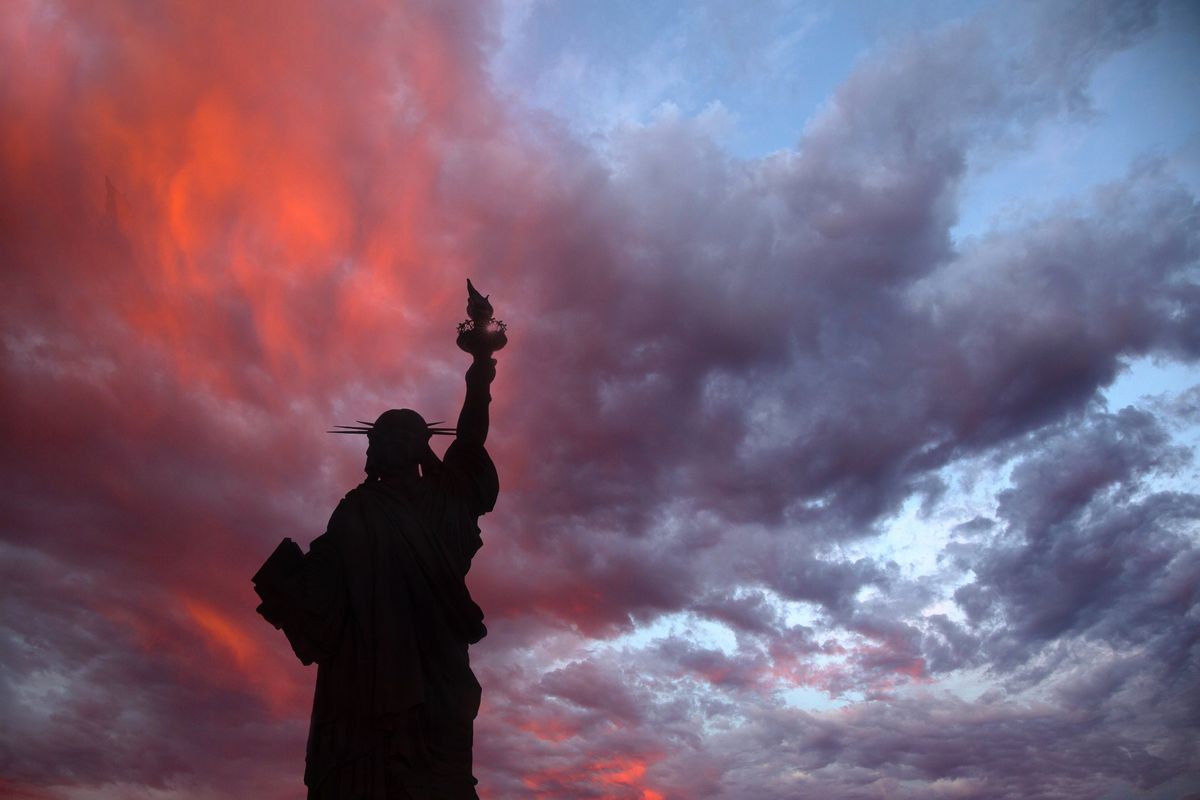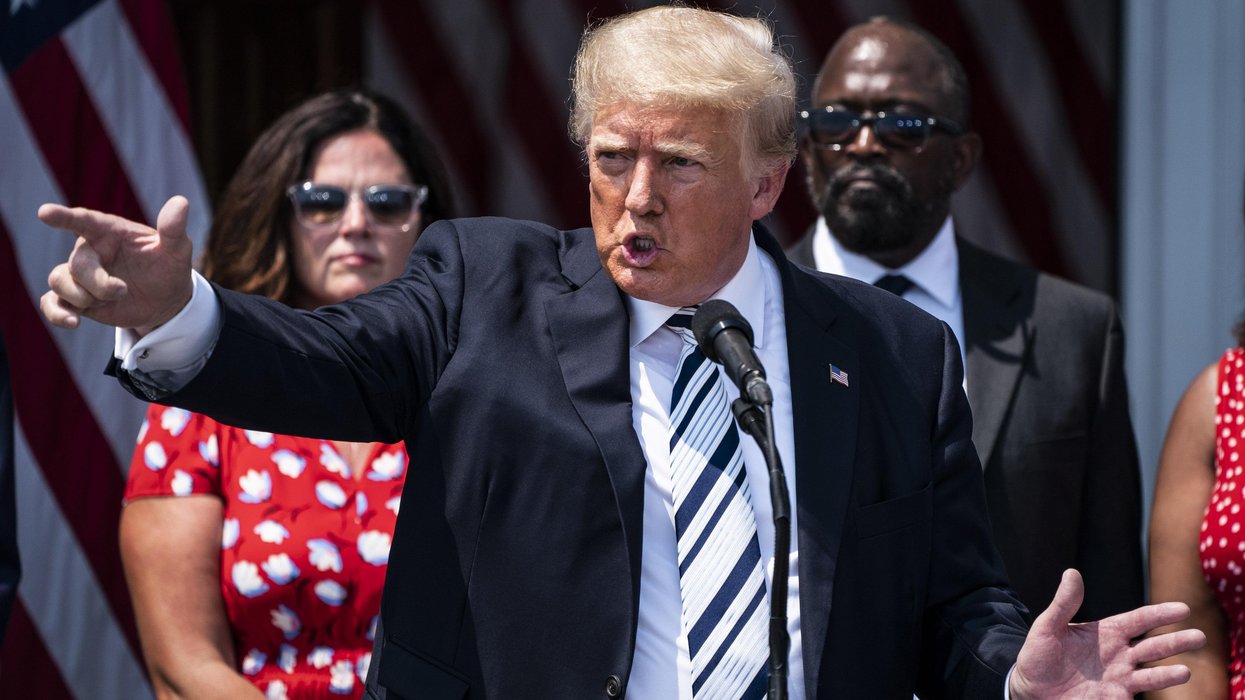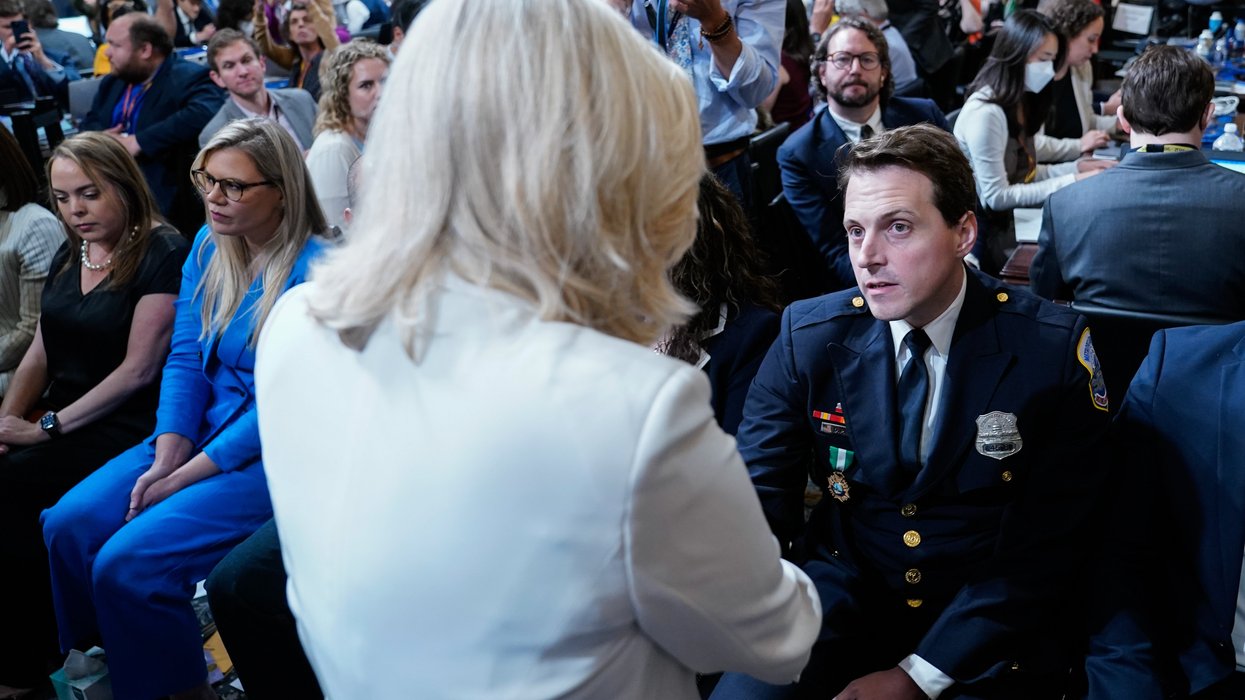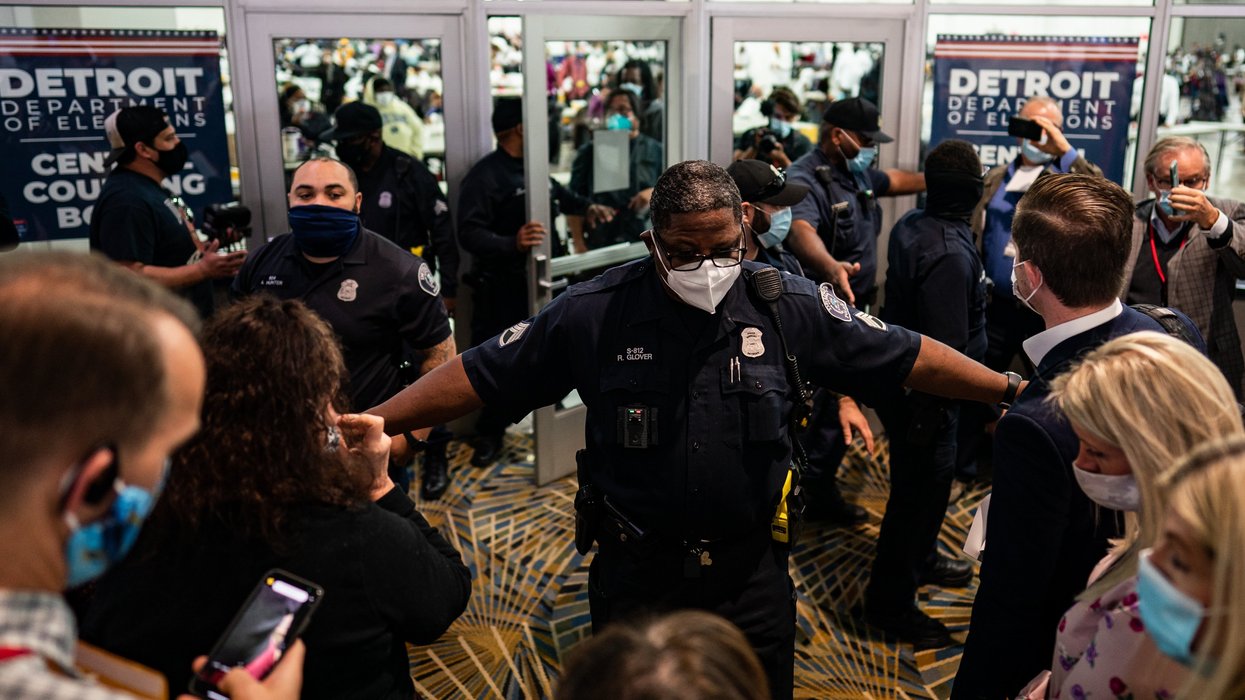Davies is president and CEO of the Kettering Foundation.
For the past 40-plus years, the Kettering Foundation has focused on the question: What does it take to make democracy work as it should? We believe a functioning democracy requires citizens actively engaged with one another in the work of self-governance and the shaping of our own communities. Not passive subjects of our government, but the active directors of our own affairs. Through decades of research, learning exchanges and public forums, the Kettering Foundation has seen and written about many moving examples of this citizen-led democracy.
The best democratic leaders understand the value of an engaged community, embrace the strength of their community’s diversity and are prepared to protect the rights of all to participate in the project of democratic self-governance. Democratic societies progress toward the fullness of their potential through rights and mechanisms that enable citizen engagement, citizen deliberation and concerted citizen action.
On this, the United Nations International Day of Democracy, which falls just two days before Constitution Day in the United States, it is important to be clear-eyed about the grave threats democracy is facing throughout the world. Those of us who are committed to defending democracy must take notice of the threats and understand their seriousness.
Sign up for The Fulcrum newsletter
If democracy watchdog organizations like Freedom House and others who create respected democracy indexes are correct, after years of ascendance, conditions for democracy around the globe have worsened for 16 consecutive years. Almost nightly, we hear distressing reports of growing authoritarian threats, and we see leaders fomenting division in their societies, instilling fear of others instead of encouraging the cross-cultural understanding and consensus-building efforts that bolster democracies. These are leaders,Freedom House writes, who “once in power” suggest that “their responsibility is only to their own demographic or partisan base, disregarding other interests and segments of society and warping the institutions in their care so as to prolong their rule.”
Recall just a few weeks ago the statements of the Hungarian Prime Minister Viktor Orbán, who denounced “mixing races,” saying that places where European and non-European people intermingled had essentially forfeited their nationhood and were “no longer nations” – as if some imagined form of racial purity should be Europe’s goal. That mindset for many harkened back to the days of Nazism. It even caused a longtime Orbán staffer to resign in protest. Orbán’s remarks attracted rebuke from leaders worldwide, but just weeks later he received a hero’s welcome at the Conservative Political Action Conference held in Texas.
We are living in a time when such events are being normalized, and it is important for all defenders of democracy to be attentive to those political leaders who play on voters’ fears of diversifying populations. Rather than recognizing the potential and promise in that diversification — and all the creative and innovative power that diversity holds — leaders with antidemocratic and authoritarian tendencies do the opposite, spreading fear and division.
There are other threats to democracy about which we are rightly concerned. In many nations we see an erosion in the rule of law, which democracies rely upon to constrain the impulses of authoritarian-minded leaders. We see waning public confidence in democratic institutions and the erosion of democratic norms, the soft guardrails of democracy. In the United States, we have seen hard-won rights, like voting rights, imperiled by new efforts to make voting more difficult, particularly in localities where minorities reside. We have seen attacks on the independence of our press, in its role as watchdog.
And as the world watched on Jan. 6, 2021, for the first time in the history of the United States, we witnessed an attempt to prevent the peaceful transfer of presidential power. It was not a military coup, but a congressional commission has made the case that the attack on the U.S Capitol was the result of our past president’s effort to remain in power after the vote of the people had gone against him. They determined he did so by sowing distrust in the integrity of the vote counts of the states he did not carry, against all credible evidence to the contrary, and by encouraging violence to prevent the certification of the election results in favor of his opponent.
Although Donald Trump’s effort did not succeed, it must continue to concern us because, more than a year into President Biden’s administration, many of his predecessor’s supporters continue to repeat the lie that the election was stolen, and many elected officials in his party in Congress refuse to refute that falsehood. Such tactics are not restricted to the United States. Brazilian President Jair Bolsonaro, behind in polls for his reelection, has made similar, unsupported claims about voter fraud and shown similar authoritarian tendencies.
These are just some of the most overt challenges. There is also concerning evidence of the fraying of the checks and balances that our framers designed to guard against tyranny. The Supreme Court is increasingly accused of ideological activism. It has enhanced the rights of personhood enjoyed by corporations, stripped rights of reproductive freedom from women, eroded voting rights and sanctioned the expansion of gun rights at a time of exploding gun violence. The legislative branch is largely gridlocked along partisan lines, with historically low public approval ratings.
A final example of a less often mentioned threat to democracy: the assault on the ways in which certain topics are being taught in our public schools. Underway in the United States is a sweeping effort to restrict how teachers approach the topics of race and gender. More than 35 of the 50 states have taken steps to restrict classroom discussions of the nation’s history of racism, and how the toxic fruits of that history might continue to constrict opportunities today. There are bills in a number of state legislatures forbidding teachers from offering instruction that “promotes division” between the races, or “promotes resentment” of members of a particular race, or teaching that causes students “discomfort,” “guilt” or “anguish” due to their race. Other bills and governmental restrictions have targeted teaching students about sexual orientation or instruction that promotes “gender fluidity.”
It is significant that these restrictions will apply to public school systems in the United States that continue to be largely segregated by race, at a time when suicides and suicide attempts among the young are disproportionately high in the LGBTQIA+ community. One state ban broadly prohibited educational materials that “promote, normalize, support or address” LGBTQIA+ issues.
When we see laws enacted to prevent citizens from being exposed to ideas, it is generally due to fear about the power and implication of those ideas, and what they require of us as members of ostensibly free, fair and democratic societies. Often what they require of us is greater fairness, a broadening of inclusion and the dismantling of barriers that serve some but disserve others.
We are in a global fight for democracy. In such times, we must find encouragement from the work of fellow democracy defenders. As put by Freedom House, “Only global solidarity among democracy’s defenders can successfully counter the combined aggression of its adversaries.”
At the Kettering Foundation, we have always recognized the critical role of an engaged public at the center of American life. We know that democracy is not just the function of institutions; it also depends on us, everyday people. When people come together to address public problems, the true strength of democracy becomes evident.
In the days ahead, our world will depend on all of us to safeguard and to build the kind of inclusive democratic systems that make space for all. The strength of a democracy can be measured by the fullness of the rights a nation state accords all its residents and the steps it takes to promote unity among them.
Divisiveness is the enemy of democracy. Inclusiveness is the answer.
Adapted from remarks delivered on Aug. 25 at the University of Palermo in, Buenos Aires, Argentina.




















